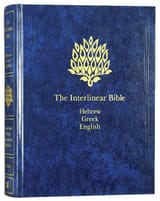>>24492445There was probably a translation of the first five or six books of Moses into Greek made in the 3rd century BC. Later, others translated other pieces of the Old Testament into Greek due to it being an important language, and eventually Origen compiled these translations in the 3rd century AD, while adding more edits of his own, into what we now call the Septuagint (as part of the Hexapla, which also had other versions of the Old Testament placed next to it).
This "Hexaplar Septuagint" of Origen in the 3rd century AD is generally the basis for what people now call the Septuagint, but they mistakenly think or assume that the oldest 3rd century BC translation (which we do not have anymore) corresponds to what Origen eventually pieced together in the 3rd century AD. They also popularly assume that Origen didn't change anything in his recension of the Septuagint when scholars have shown he certainly did. He likely harmonized various passages to match up with New Testament language, and this only further creates the illusion or popular misconception that the New Testament writers had used it.
>>24493902>Masoretics come from the 9th century and they tried to write out clues pointing to Jesus so yeah they're pretty noticeable.I've done comparisons between the Hebrew and Greek forms of the Old Testament, and I can only find places where prophecies about Jesus are removed in the Greek version, not the other way around.
For example, compare Isaiah 9:6, Hosea 11:1 (which is quoted by Matthew 2:15 out of the Hebrew version, not the Greek version) Zechariah 12:10, and Psalm 2:12. Another messianic prophecy referring to Christ is found in Jeremiah 33:15, which is a verse that is removed entirely by the Septuagint.
In fact, the Septuagint form of Jeremiah is missing about 1/8 of the book or 2700 words which are simply not there compared to the older Hebrew version. Jeremiah 33:14-26 for example, a passage of thirteen verses, is missing from the Septuagint.
In other books, the Septuagint Old Testament is missing 31 entire verses from the book of Proverbs by my count, 39 whole verses in 1 Samuel, 49 whole verses in 1 Kings, and 56 whole verses in Exodus, and more. Then there are the messianic prophecies which are changed in the Septuagint to no longer point to Christ, such as Zechariah 12:10 ("they shall look upon me whom they have pierced"), Isaiah 9:6 or Haggai 2:7. You can compare these verses easily by putting the KJV next to the Brenton English translation of the Septuagint for example, or the OSB 2008 translation of the Septuagint.
Also, the Septuagint text has Methuselah live a full 14 years after the flood of Noah, due to differences in some of the ages (see Genesis 5:25, 28). In the Hebrew version, Methuselah died the same year that the flood happened.
It seems to me like those extolling the Septuagint are often not aware of these basic facts, and I don't know of examples where the Hebrew text used by the KJV has such problems.




